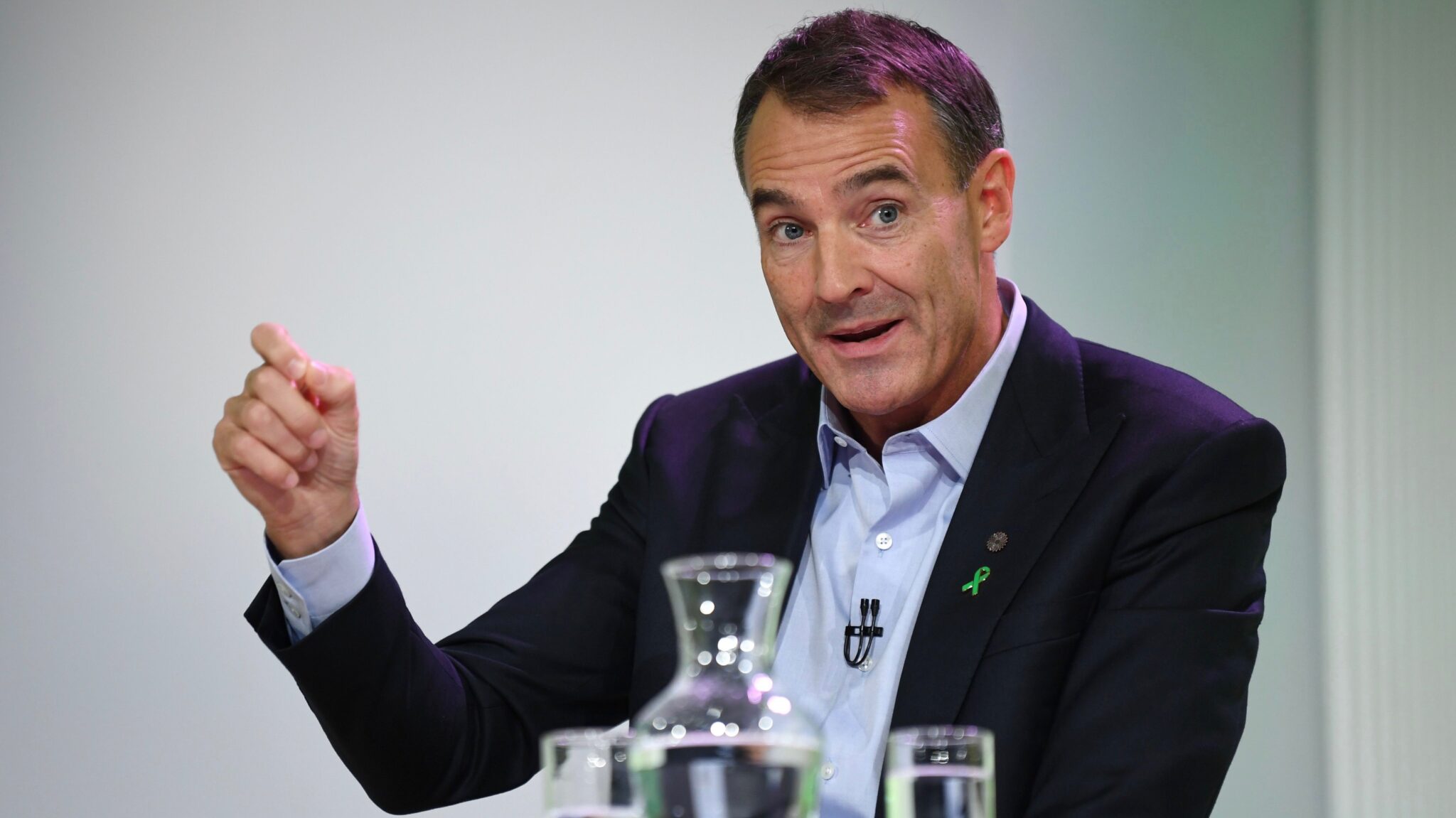
BP Announces Net Zero Emissions by 2050 Target, but Offers No Details

BP CEO Bernard Looney speaks during an event in London on Feb. 12, where he declared the company's intentions to achieve "net zero" carbon emissions by 2050. DANIEL LEAL-OLIVAS / AFP / Getty Images
British-based oil and gas giant BP set the most ambitious climate goal of any company in its industry yesterday when it announced that it will eliminate or offset all of its greenhouse gas emissions by 2050, according to The New York Times. Its ambitious plans included offsetting the burning of oil and gas it takes out of the ground.
The company’s chief executive Bernard Looney, who stepped into the top job this month, said the 111-year-old company must “reinvent” itself, a strategy that will eventually include more investment in alternative energy, according to the BBC.
“The world’s carbon budget is finite and running out fast,” CEO Bernard Looney said in a statement, as CNN reported. “We need a rapid transition to net zero. We all want energy that is reliable and affordable, but that is no longer enough.”
The pledge is a tacit acknowledgement of the pressure that fossil fuel producers face from the public and from investors who are either divesting or demanding action to stop the global climate crisis. While the move is significant, Looney did not detail a plan for how BP would hit its ambitious target, as The New York Times reported.
“We are aiming to earn back the trust of society,” Looney said at a news conference in London, as The New York Times reported. “We have got to change, and change profoundly.”
While the details are scant, Looney did acknowledge that much of BP’s business model and its priorities will have to change in response to the climate crisis and to the changing demands of the market economy, which is looking for affordable renewable energy.
“This will certainly be a challenge, but also a tremendous opportunity. It is clear to me, and to our stakeholders, that for BP to play our part and serve our purpose, we have to change. And we want to change – this is the right thing for the world and for BP,” Looney said as the BBC reported.
“Providing the world with clean, reliable affordable energy will require nothing less than reimagining energy, and today that becomes BP’s new purpose,” he added. “Reimagining energy for people and our planet. We’ll still be an energy company, but a very different kind of energy company: leaner, faster moving, lower carbon, and more valuable.”
Looney said that details would be revealed at a presentation in September. As CNN noted, the commitment is the most ambitious of any oil company. Shell set targets to rein in emissions while Chevron and ExxonMobil are still far behind.
“They really are setting a new standard for what leadership looks like in the industry,” Andrew Logan, senior director of oil and gas at Ceres, a nonprofit that lobbies for companies to take action on climate change, said as CNN reported.
Logan noted how important it was that BP acknowledged that it needs to offset the oil and the gas that consumers use, as MarketWatch reported. “There is no reason that Exxon and Chevron can’t follow suit,” he said.
The carbon footprint of the oil and gas that BP and other companies sell is massive. In its own reporting, BP said that the company emits about 55 million tons of greenhouse gases each year directly from its extraction operations and refineries. However, an additional 360 million tons each year is released when their extracted oil and gas is burned in vehicles or to heat homes, as The New York Times reported.
The plans drew a tepid response from environmental groups and even criticism from some who see fossil fuel extraction as something that needs to stop immediately.
“Unless BP commits clearly to stop searching for more oil and gas, and to keep their existing reserves in the ground, we shouldn’t take a word of their P.R. spin seriously,” Ellen Gibson, a campaigner for fossil-fuel divestment with the environmental group 350.org in Britain, said as The New York Times reported.
- Oil and Gas Operations Release 60 Percent More Methane than ...
- New U.S. Oil and Gas Emissions Could Nearly Erase Environmental ...
- Deepwater Horizon Also Spilled 'Invisible Oil,' Harming Far More Marine Life Than Previously Known - EcoWatch
- BP to Cut Oil and Gas Production 40%, Invest 10x More in Green Energy - EcoWatch
- New Report Shows U.S. Can Achieve Net-Zero Emissions by 2050
- U.S. Could Reach Net-Zero With More Benefits Than Costs
- Why Companies’ Net-Zero Pledges Should Trigger Skepticism

 233k
233k  41k
41k  Subscribe
Subscribe 